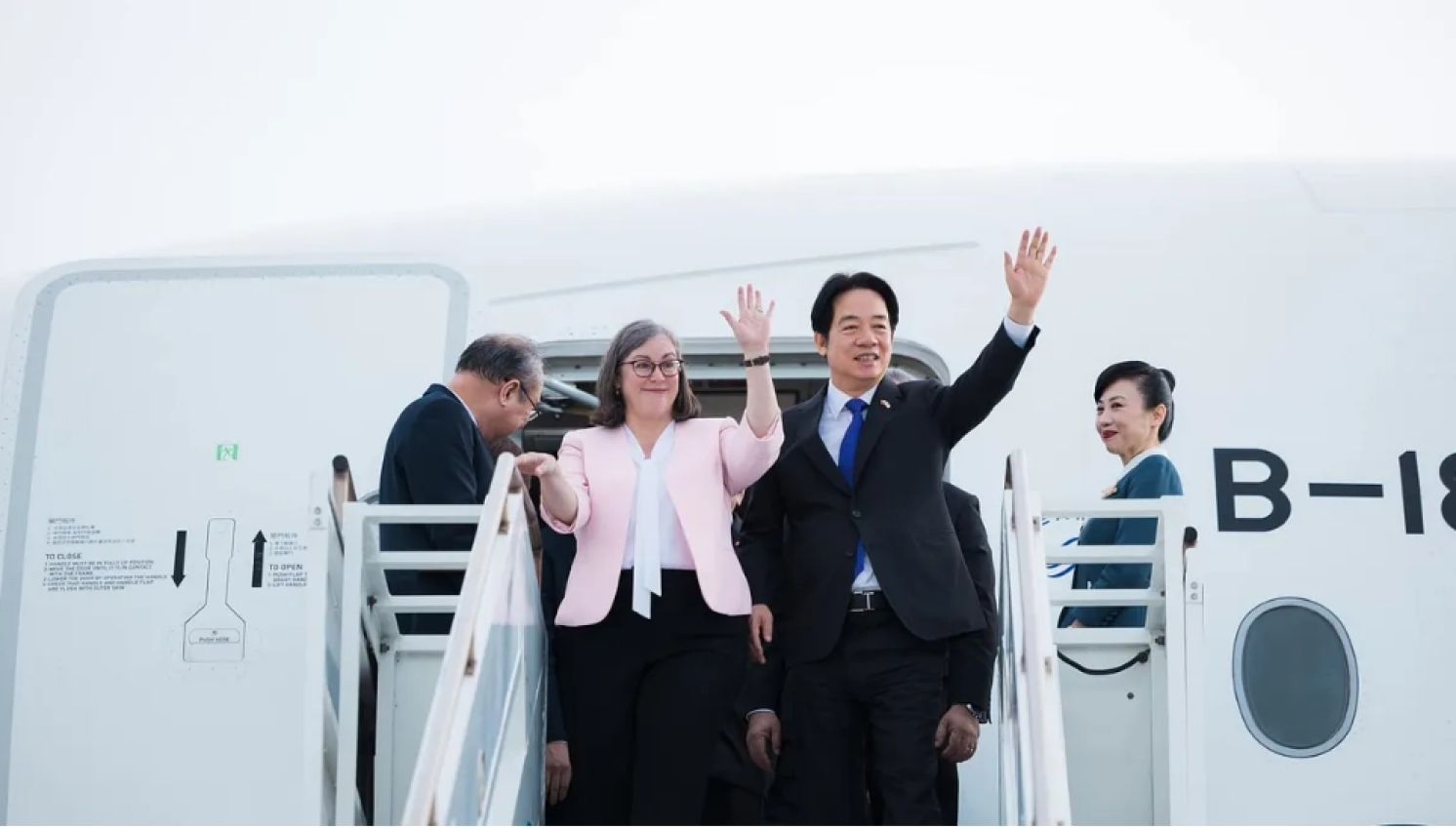
Head-of-State Diplomacy Disrupted: Warning Bell for U.S.-Taiwan Relations
China Times Editorial, July 29, 2025
The Office of the President announced on the evening of July 28 that President Lai Ching-te currently has no plans for overseas visits, citing the ongoing recovery from southern Taiwan's flood disaster, U.S. reciprocal tariff discussions, and regional developments. A previously rumored visit to Paraguay in early August, with stopovers in New York and Dallas, has been changed.
The setback comes shortly after the DPP’s major defeat in the July 26 recall vote, dealing a further blow to the Lai administration’s diplomacy. Combined with stalled U.S.-Taiwan trade talks, the chain reaction from these events has brought the administration its most significant crisis since taking office.
According to reports from the Financial Times and Bloomberg, the administration of President Donald Trump in the United States blocked President Lai’s planned transit through New York due to concerns over ongoing U.S.-China trade negotiations and a potential Trump-Xi summit in late October. While Washington maintains that Taiwan presidents transiting through the United States is consistent with long-standing policy, the abrupt suspension of this visit was considered highly unusual. Whether the postponement was a strategic choice by President Lai or a direct rejection by the Trump administration, the development is seen as a warning sign for Taiwan’s diplomacy and U.S.-Taiwan relations.
On July 14, President Santiago Peña of Paraguay announced during an event commemorating the 68th anniversary of diplomatic ties with Taiwan that President Lai would visit the country within 30 days. Minister of Foreign Affairs Lin Chia-lung was also present. Although the Office of the President and Ministry of Foreign Affairs never formally announced the trip, sources later indicated that President Lai planned to transit through New York on August 4 for a welcome banquet, then visit Paraguay, Guatemala, and Belize. On the return leg, President Lai was expected to stop in Dallas to attend the 2025 Taiwan Expo USA. The itinerary appeared well-planned, pending final American approval.
When asked about President Lai’s U.S. transit on July 17, U.S. Department of State spokesperson Tammy Bruce reiterated that such visits are consistent with longstanding policy and emphasized the importance of safety, comfort, convenience, and dignity for transiting officials. The Office of the President cited the flood recovery and reciprocal tariff issues as reasons for the cancellation, but the sudden change remains unexplained. Observers noted this abrupt shift suggests the administration may have misjudged the evolving dynamics under a Trump 2.0 foreign policy framework.
Since late President Lee Teng-hui’s landmark U.S. stopover in 1997, transits by Taiwan presidents have been viewed as key indicators of U.S.-China-Taiwan relations. Except for 2006, when former President Chen Shui-bian canceled a trip due to limited transit rights in Alaska, most presidents have successfully transited through the U.S. mainland. Last November, President Lai made his first overseas trip as head of state to the Marshall Islands and other Pacific allies, transiting through Hawaii and Guam. Compared with past presidents who swiftly visited Latin American allies and stopped over in the continental United States after taking office, President Lai’s diplomatic debut appeared modest. The latest cancelation, just before entering American territory, underscores the complexities of U.S.-China-Taiwan relations under a renewed Trump administration.
With a strategic goal of achieving a comprehensive U.S.-China deal, the Trump administration is reportedly avoiding Taiwan-related matters to prevent them from becoming bargaining obstacles. Washington believes Beijing’s stance is hardening and may seek reductions in American military presence in the Indo-Pacific region and clearer positions on Taiwan and the Philippines as part of broader trade and security negotiations.
U.S. Secretary of the Treasury Scott Bessent is currently in Stockholm, Sweden, holding a third round of talks with Chinese Vice Premier He Lifeng. In addition to extending the tariff truce, preparations for a Trump-Xi summit are a top priority. Taiwan remains a key political variable in both the summit and broader bilateral discussions, raising concerns among U.S. China hawks that Mr. Trump may offer excessive concessions to secure a deal.
Following reports of President Lai’s intended U.S. transits, the Taiwan Affairs Office of mainland China’s State Council immediately voiced strong opposition to any official interaction between the United States and Taiwan, condemning Lai’s “transit” as a “stealth visit.” Beijing is expected to reiterate its stance forcefully during upcoming high-level negotiations. For the Trump administration, the strategic importance of U.S.-China relations clearly outweighs Taiwan’s role.
The Lai administration had disclosed the U.S. transit plan amid the heightened phase of the recall campaign, seemingly to bolster its “pro-American, anti-China” image and strengthen its domestic standing. However, critics say the strategy backfired, especially after details were publicized before securing American approval. The recall vote failed, and the United States did not endorse the transit, damaging the administration’s credibility and public image.
Aside from standard statements reaffirming policy, the Trump administration has remained silent on President Lai’s transit plans. Future visits may be possible under more favorable conditions. Nevertheless, this episode has exposed shortcomings in the Lai administration’s national security and diplomatic teams, with critics arguing they misread the international landscape and improperly linked foreign policy with domestic politics. The administration now faces compounded internal and external pressure and is being urged to re-evaluate both public sentiment and national interests with renewed seriousness.
From: https://www.chinatimes.com/opinion/20250729003882-262101?chdtv